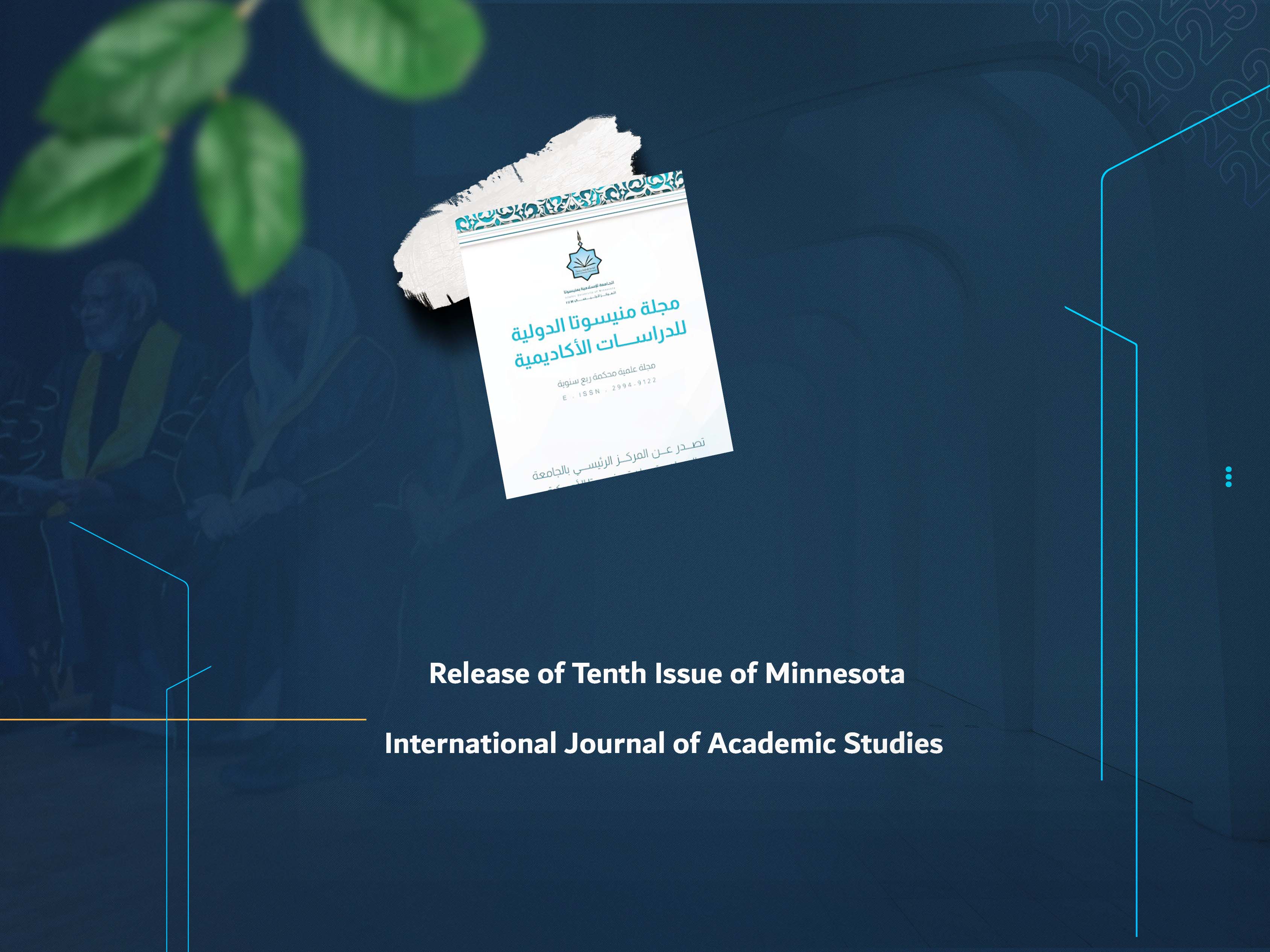Release of Tenth Issue of Minnesota International Journal of Academic Studies

The tenth issue - June 2025 of the "Minnesota International Journal of Academic Studies," an electronic scientific peer-reviewed journal published by the Islamic University of Minnesota, main campus, has been released, comprising 324 pages.
According to the Editor-in-Chief, Professor Hanan Sobhi Obaid, this issue includes rigorous, peer-reviewed research adhering to the highest standards, reshaping concepts of educational and social thought, in-depth studies on digital transformation and its impact on global education, and cultural approaches reflecting intersections between identity and knowledge. Professor Obeid noted that the editorial board aims to establish quality standards and scientific rigor while providing a robust platform for researchers from around the world.
The diversity of research fields covered in the articles is evident from their titles; ranging from literary analysis of a novel using literary criticism theories (Bakhtinian dialogue, space-time, post-colonialism) to studies on early diagnosis, treatment, and prevention of symptoms related to the fifth cranial nerve (trigeminal nerve) and the seventh cranial nerve (facial nerve). Other topics include developing academic programs for training teachers and empowering educational leaders in public schools, exploring applications of artificial intelligence to improve the quality of higher education (from students' perspectives), studying concepts and practices of building and managing effective teams in organizations (often in an administrative or organizational context), and an analytical and evaluative study of a classical Sufi text (the Qushayri Letter). Additional research includes a study on the Barzakh (the state between death and the Day of Resurrection) in Islamic belief, examining the regulatory principles governing artificial intelligence applications from an Islamic perspective, highlighting the role and responsibility of auditors in detecting fraud and errors in financial data using field study methodology, exploring the impact of media language on enhancing the affiliation of Arabic language learners as a second language, and researching the technological application (artificial intelligence) in higher education.
It is noteworthy that the issue includes ten articles published in Arabic, in addition to one article published in English, reflecting a geographical diversity in the nationalities of the researchers, who number 16 in total.


